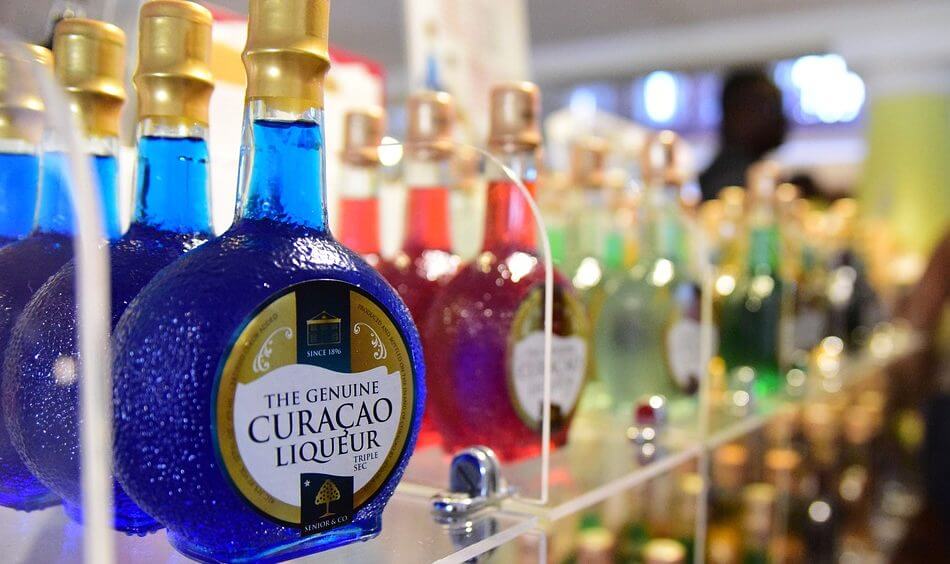Why Does My Loved One Hide Alcohol?
Hiding alcohol is a very common sign of alcohol use disorder, also called alcohol addiction. If your loved one hides alcohol, you may find it around the house in the bottle it came in, in a water bottle, or in other drink containers.
When you discover that your loved one is hiding alcohol, it is often a scary time. Perhaps, you knew your loved one engaged in excessive drinking already, and discovering hidden alcohol around the house was the moment you could no longer ignore the problem. Alternatively, hidden alcohol could be one of the first signs of alcohol addiction you see.
Either way, your loved one deserves help and a judgment-free space to land. In this article, we’ll talk about alcohol use disorder and what to do if you discover that your loved one is drinking alcohol in private.
Keep reading to learn more about how to help a loved one with alcohol, and about the effective programs for recovery at Best Rehabs In Arizona in Colorado and Arizona!
Understanding Alcohol Use Disorder (AUD)

Alcohol use disorder (AUD) is a mental illness, just like other substance use disorders. It could be that your loved one experiences alcohol addiction alone, or it could be that their alcohol consumption occurs alongside the use of other drugs.
While multiple risk factors increase the risk of an alcohol use disorder, the fact of the matter is that anyone can face alcohol addiction. Substance abuse has become increasingly prevalent throughout the years. The good news is that AUD is a treatable disorder.
Signs And Severity of an Alcohol Use Disorder
While hiding alcohol is one sign of a problem, understanding the other symptoms of alcohol addiction can help you identify it in yourself, family members, friends, or someone else you know, like a partner. Alcohol use disorder can be mild, moderate, or severe. Mild alcohol use disorder is marked by two to three of the signs below, whereas moderate alcohol use disorder is marked by three to five and severe alcohol use disorder is marked by six or more.
Signs of alcohol abuse include but aren’t limited to:
- Drinking alcohol in large amounts or over a longer period than intended.
- A persistent desire to stop drinking paired with unsuccessful efforts to reduce or control alcohol use.
- Cravings or a strong desire to drink alcohol.
- Spending a large portion of time on activities required to obtain, use, or recover from the effects of alcohol.
- Continued alcohol use that results in failure to attend to obligations at work, school, or home.
- Continuing to drink despite negative effects in the form of ongoing social or interpersonal problems caused or exacerbated by alcohol consumption.
- Giving up or reducing time spent on important social, occupational, or recreational activities due to alcohol use.
- Recurrent alcohol use despite getting into physically hazardous situations due to drinking.
- Continued drinking despite recurrent or persistent physical or mental health issues that are likely caused or worsened by alcohol.
- Tolerance is marked by either a need for higher drinking levels (a larger quantity of drinks) to achieve desired effects or a markedly reduced level of intoxication from drinking the same amount of alcohol.
- Withdrawals marked by either withdrawal syndrome or consuming alcohol or a closely related substance, like benzodiazepines, to avoid or relieve withdrawal symptoms.
Regardless of severity level, getting professional help is crucial. Friends and family members are often an important part of a person’s support system, so the fact that you are reading this is already an excellent first step. Now, what are the treatment options?
Treatment Options For Alcohol Addiction

Everyone with a substance use disorder will have different treatment needs. Thankfully, there’s more than one treatment option for AUD. Treatment options for alcohol addiction include but aren’t limited to:
Residential treatment
Residential treatment involves staying at the treatment facility for the duration of care. In other words, individuals attending residential treatment will sleep and eat at the facility to which they are admitted.
You or your family member attending treatment will typically engage in various therapies (such as individual, group, and family therapy), creating a relapse prevention plan, and other helpful activities while in a residential treatment program.
Long-term rehab
It takes a lot of work and courage to manage addiction. Long-term rehab is ideal for those who require a longer duration of treatment than residential programs provide.
Residential treatment stays are usually around one to three months, whereas long-term rehab allows someone to stay in treatment for more than three months. While it depends on the person and their needs, some stay in long-term rehab for six months to a year.
Partial hospitalization programs

A partial hospitalization program (PHP) is more intensive than an outpatient program but less intensive than inpatient treatment. Like with outpatient programs, you do not sleep at the facility when you attend PHP. However, PHP usually requires a time commitment of around twenty hours per week.
Intensive outpatient programs
An intensive outpatient program (IOP) for mental health concerns like substance use disorders is exactly what it sounds like. Rather than sleep and eat at a treatment facility, intensive outpatient allows someone to live at home or otherwise outside of a facility while in care. IOP requires a time commitment of between nine to nineteen hours per week.
Medical detox
Withdrawals are uncomfortable. Medical detox is a safe space to go through the initial withdrawal and detoxification process while supervised by medical professionals. Some people, though not all, attend medical detox prior to treatment.
The Myth Of The “High-Functioning Alcoholic”

You may or may not have heard the term “high-functioning alcoholic.” Usually, the term high-functioning alcoholic is used to describe a person who continues to engage in society through maintaining a job or their family life despite heavy drinking or an otherwise notable drinking problem. This may represent your loved one who attempts to hide alcohol.
Loved ones hiding drinking problems sometimes feel that they “have it under control” and may initially resist treatment. That said, a drinking problem is always serious enough to get help. Take a deep breath and know that your loved one can get to a better place.
Get Help For Yourself Or A Loved One
If your loved one is hiding alcohol or shows other signs of alcohol addiction, there is hope. Best Rehabs In Arizona is here to help. Best Rehabs In Arizona has many locations and levels of care in Arizona and Colorado. The levels of care we offer include residential, outpatient, partial hospitalization, detox, and long-term rehab.
Our hotline is available 24/7 for people with substance use disorders and their loved ones. When you contact Best Rehabs In Arizona, we will help you verify insurance coverage for treatment and find a placement at one of our facilities.
Call Best Rehabs In Arizona to speak with an addiction counselor today or fill out the Contact Us form on our website now!
Frequently Asked Questions (FAQs) on Hiding Alcohol
Why do people hide their alcohol?
If someone hides alcohol in their own home, it is usually because the person knows that they have a problem. A person may hide alcohol out of shame or so that others do not know how much alcohol they drink.
Where do people usually hide alcohol?
If you find alcohol hidden by a loved one once, you may wonder where else they’re hiding alcohol. Common spots to find hidden alcohol include dresser drawers, closets, or containers typically used for other drinks, such as water bottles.














